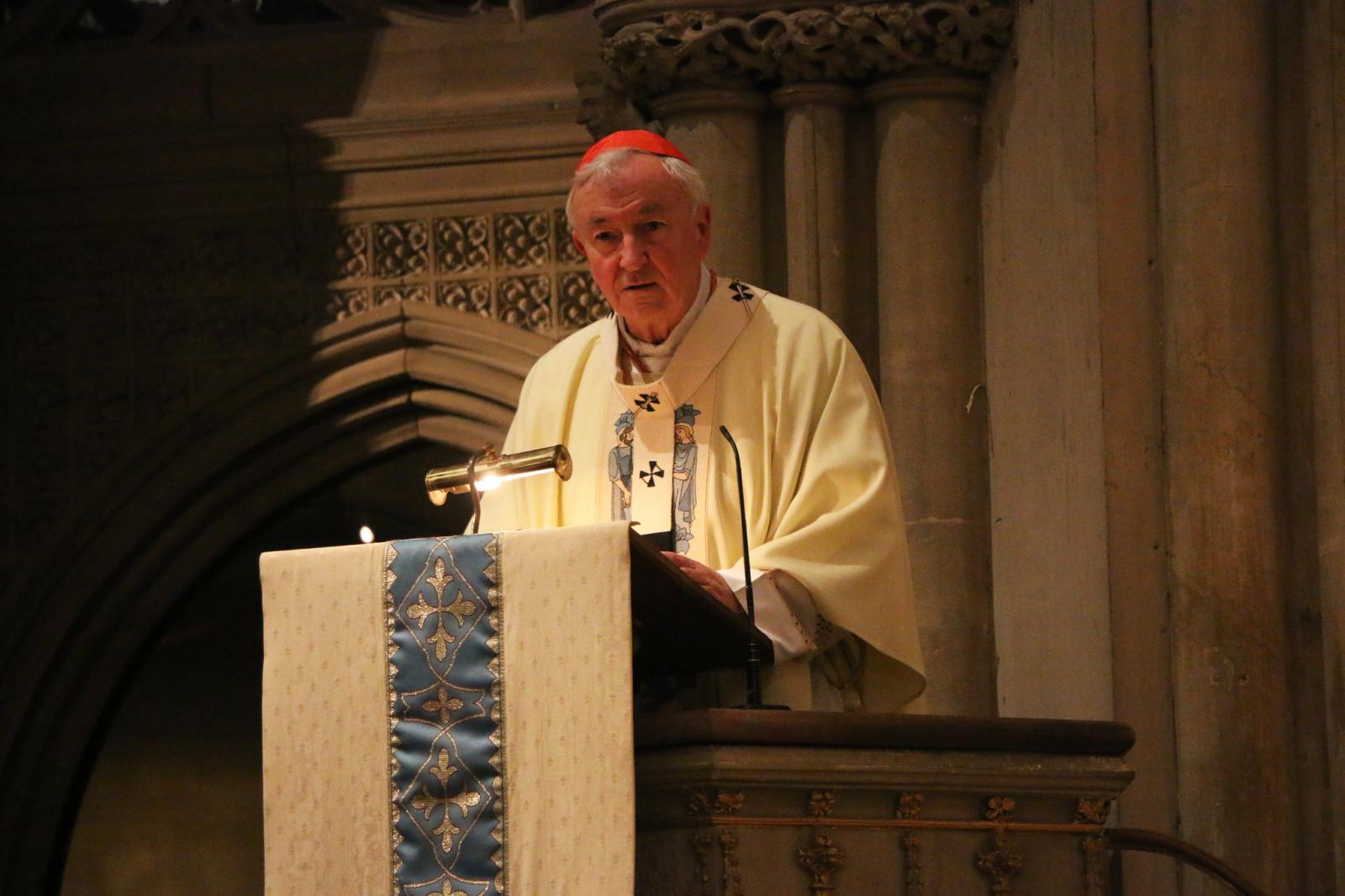Given at the ordination to the priesthood of Peter O’Sullivan SJ, at the Church of the Immaculate Conception, Farm Street, on 29th July 2023
It is always said that the best appetiser for a good meal, or the most tasty sauce, is hunger. It makes the moment all the more enjoyable. And there is a keen hunger that lies at the heart of this ceremony, this ordination to the priesthood of Peter.
And by this I am not thinking of the long time of extensive preparation and formation that is a characteristic of the life of a member of the Society of Jesus. No, there is a deeper longing that is before us this afternoon: the hungers that are presented in the Gospel passage we have just heard.
First we heard of the hunger of the disciples for some rest, some time of peace in the company of Jesus, their Master. But then we heard of the hunger of the crowd, seeking out Jesus, not letting him escape from their midst. These two hungers, these two desires, are known to us all. And they are a crucial part of every pathway of discipleship and certainly of the life of the priest.
To be called to the priesthood is to know a hunger for the Lord, a desire to spend time in his company, to give oneself, wholeheartedly, to him, above all else. It is a hunger, a call, that cannot be ignored, not without deep discomfort. It has to be embraced. Then the lasting joy of the life of the priest opens up. Yet, at the same time, this call is marked by deep desire, a hunger, to serve God’s people, recognising the inner hunger, often unnamed, that moves people to seek out the Lord and the light, meaning, hope, that he alone can bring. The priest is a missionary disciple who longs to proclaim his Lord and share the joy of knowing and loving him. He is eager to respond to the hunger of the people of his time and place.
In this Gospel passage we are given a powerful image of these dynamics: the image of the Good Shepherd and his care for the flock. Jesus is moved with pity by the desire of the crowd to be with him. This compassion overcomes his weariness and by his example he teaches the disciples, as well as you Peter, and me, and all of us, to overcome every frustration when we are asked to give a response to those in need, a moment of our time, a word of comfort or blessing.
Then, in the second part of the Gospel, all of this is made real in a miracle, the miracle of the loaves and fishes.
This miracle takes us to the heart of the mission of Jesus, a mission which he passes on to us. It is the only miracle that appears in all four Gospels, such is its importance.
Sheep without a shepherd risk getting lost. They are unprotected from danger. And they may not find food. It is the shepherd’s task to feed his flock. In the account of this miracle that task seems impossible. The very immensity of the task of feeding five thousand people, and the poverty of the resources available, lie at the very core of this miracle. Notice the reaction of the disciples to the hunger of the crowd: ‘Send them away!’ Jesus says: ‘You feed them!’ ‘We can’t!’ And there it is! What we have, what we are, in our eyes is never enough. But in the eyes of the Lord it is more than enough!
And this is where we stand at this moment, imploring the Lord to give to Peter the gift of the priesthood and all that goes with it. He knows he is not worthy, just as we all know we are not worthy. This is something utterly beyond our capacity and power. But the Lord assures us: what we have is enough, indeed more than enough. If we hand it all over to him, the fruit will flow by his power, with our humble cooperation.
Now we must remember the words of St Peter: ‘Humility is the garment you must wear…. Bow down then before the power of God.’ This expresses perfectly the disposition of our hearts at this moment. And not just here and now, but habitually in our lives.
St Peter tells us that such humility permits God to do his work within our lives, the work of confirming, strengthening and supporting us. Without that we are lost, make no mistake!
These are three powerful words: the word here translated as ‘confirm’ can also be translated as ‘restore’ for it is the word used for setting a broken bone, or repairing a torn net. Only the Lord can lift us from our brokenness and fit us for his work.
And the word ‘strengthen’ implies, in its original meaning, being made as solid as granite, not flabby, but tried and tested and reliable.
The third word describing God’s work in us is ‘support’, sometimes translated as ‘settle’ as it implies a laying, or even relaying of foundations.
So this is our prayer for Peter today: that the Lord will constantly repair the weaknesses that may surface during his ministry; that he will strengthen him, like firm rock on which others can indeed depend; and settle in him, ever anew, strong foundations through those times of intimacy with the Lord for which he certainly longs.
Peter, may the Lord fashion you as a true shepherd, readily moved with pity and always generous in every service entrusted to you.
Now we are ready to proceed with this joyful ordination.
✠Cardinal Vincent Nichols
Archbishop of Westminster
Photo: Jesuits in Britain
